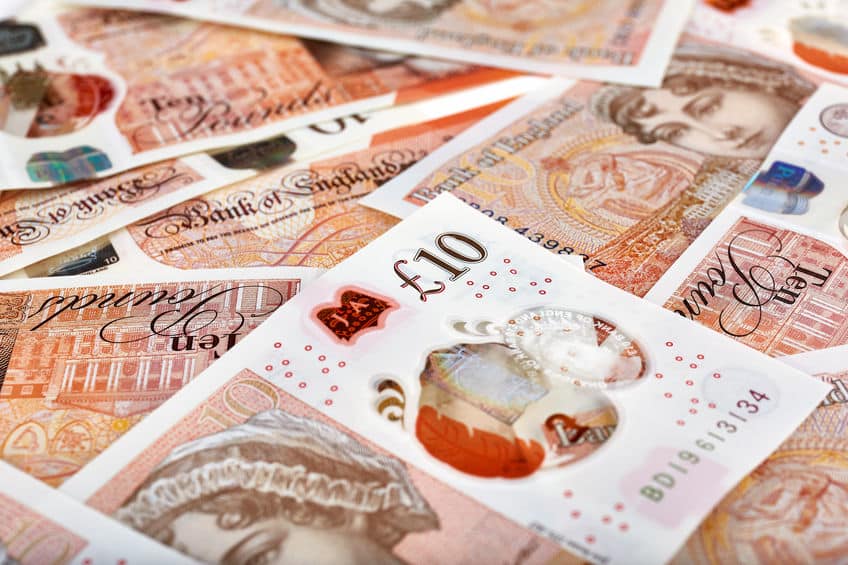Sterling Faces Evaluation, Eurozone Calm, Dollar Eyes Data

GBP
Sterling’s upward trajectory will encounter a critical evaluation this week as the UK prepares to unveil its latest job market data. Of particular significance will be wage growth metrics, now deemed pivotal indicators for the Bank of England alongside service sector inflation. Additionally, this week brings noteworthy releases such as January’s GDP and February’s retail sales figures.
GBP|EUR experienced a minor decline from 1.1750 to 1.1730, as the UK currency retraced some gains from the previous week, potentially influenced by the KPMG Report on Jobs indicating a downturn in salary inflation for permanent job placements. Despite the correction GBP|EUR is still sitting at levels close to the 52 week high of 1.1774 making it a great time to trade for Euro buyers.
GBP|USD is treading water ahead of significant UK employment and GDP data releases this week. Last week’s testimony from Fed Chair Jerome Powell left a dovish mark on markets, with his cautious outlook on disinflation and hints at potential rate cuts catching investors by surprise. While Sterling might surge to new highs against the Dollar this week, supported by positive technical signals, any shortfall in UK wage data or an overachievement in US inflation statistics could trigger a swift reversal.
In the UK, focus will be on labour market data for the three months ending January, providing insights into job and wage growth momentum. Persistent wage growth could postpone market expectations for Bank of England rate cuts until the August meeting. However, policymakers caution that while inflation is expected to ease to the 2% target by summer, it could reemerge thereafter.
Elsewhere, Sterling will be swayed by US Consumer Price Index (CPI) data for February, scheduled for release on Tuesday. Robust inflation data could temper anticipations for a Federal Reserve rate cut in June. Despite this, the likelihood of a rate cut remains significant, as highlighted by the latest US Employment report, which revealed softening wage growth and a higher Unemployment Rate.
EUR
This week is relatively quiet for Eurozone data, with the highlight being industrial production figures for January, released tomorrow. The main focus will be on ECB members’ statements after Thursday’s meeting, particularly regarding the feasibility of a rate cut in June and the necessary conditions regarding wage and inflation levels.
There’s a chance that the EUR|USD rate might decrease this week, possibly going back to the 1.0850-1.0900 range. However, markets are anticipating that the Euro might get stronger against the dollar in the long run, as the European Central Bank (ECB) and the Federal Reserve (Fed) might cut interest rates in June, which could make the Euro stronger against the Dollar, especially if the Fed’s rate cut is bigger.
USD
Federal Reserve Chair Jerome Powell’s recent testimony before Congress left markets with a cautious outlook. His remarks hinted at potential rate cuts, contrary to investors’ expectations of a more optimistic stance. This shift in sentiment led to adjustments in currency positioning against the Dollar, indicating the significance of data in shaping market expectations.
The recent US employment data, although initially strong with a headline figure of 275k new jobs, raised concerns about data accuracy due to significant downward revisions in previous months. Job gains were primarily seen in sectors not typically associated with economic strength. This uncertainty underscores the importance of forthcoming data releases, such as February’s Consumer Price Index (CPI), to gauge the true state of the economy.
Markets anticipate that CPI figures will reveal a modest monthly increase, which, despite falling short of the Fed’s inflation targets, suggests that immediate easing measures are unlikely. This week’s US economic calendar also includes retail sales and industrial production data, along with the University of Michigan surveys. The Fed’s upcoming meeting adds to the anticipation, with expectations that inflation data may halt the dollar’s recent decline unless there are significant shifts in key economic indicators favouring Fed easing.
If you have an upcoming currency requirement and would like to hear more about what is affecting the markets in the coming weeks, please contact us on 020 3876 5432.